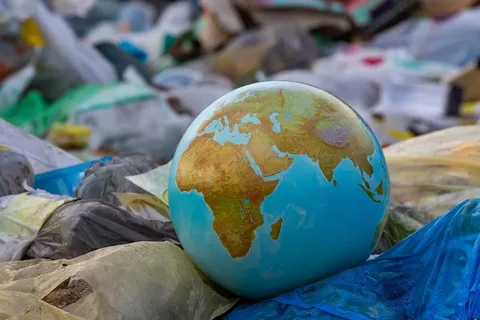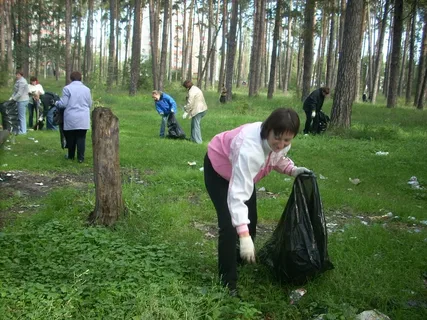Table of Contents
ToggleIntroduction
In a world that is increasingly marred by unsustainable consumption patterns and mounting waste, finding abundance in a waste-free life can present a paradox at first glance. However, as we delve into the realm of conscious consumerism, we discover a reality where mindfulness meets more. This article aims to explore the principle “Waste not, want not”, shedding light on the profound implications it has for our environment, economy, and personal fulfillment. By adopting waste-free practices, we can foster a lifestyle of abundance that is rooted in sustainability and respect for our planet.

Abundance in a Waste-Free Life
Abundance in a waste-free life refers to the notion that we can lead rich, fulfilling lives while minimizing our waste output. It challenges the traditional concept of abundance that is often associated with material possessions and consumerism, and instead, suggests that true abundance lies in the quality of our lives, not the quantity of our possessions. By adopting a waste-free lifestyle, we not only contribute positively to environmental preservation but also foster a deeper appreciation for what we have, leading to a more meaningful and contented life.
Significance of Reducing Waste
Reducing waste is not just environmentally critical, but also economically beneficial. The waste we generate ends up in landfills, contributing to greenhouse gas emissions and exacerbating climate change. Moreover, excessive waste production reflects inefficiency in the use of resources that could have otherwise been preserved or redirected for better purposes. Recycling and composting, integral parts of waste reduction, give a second life to materials, thereby conserving natural resources, saving energy, and reducing pollution.
Concept of Abundance in Waste Reduction
The concept of abundance in waste reduction aligns with the philosophy of “less is more”. Here, abundance is not about amassing, but about creating space for things that truly matter. It is about realizing that reducing waste and consumption does not equate to a life of scarcity, but rather opens the door to a life of quality, where we value experiences over possessions. This approach allows us to enjoy the fullness of life while also taking responsibility for our environmental footprint, creating a harmonious balance between our desires and the planet’s needs.
Philosophy of Waste Not, Want Not
Historical Perspectives on Waste Reduction
Historically, the philosophy of waste not, want not, has been woven into many cultures, emphasizing frugality and conservation. In times of scarcity, societies understood the importance of utilizing resources to their fullest extent, reducing waste wherever possible. Waste reduction played a critical role in survival, underscoring the value of mindful consumption and resource management.
Cultural Shifts Towards Sustainable Living
As awareness of environmental impacts has grown in recent decades, there has been a significant cultural shift towards sustainable living. The principle of waste not, want not, has taken on new relevance in the context of modern consumerism. Many people are now adopting waste-free practices, such as zero-waste living, composting, and mindful buying, as a means to counteract the harmful environmental impact of excessive waste and consumption. This shift represents a return to the wisdom of our ancestors, embodied in the philosophy of waste not, want not.
Economic Benefits of Reducing Waste
From an economic standpoint, reducing waste yields significant benefits. It saves costs associated with waste disposal and opens up opportunities for innovative recycling industries. By maximizing the use of resources, businesses can operate more efficiently, reducing production costs and fostering economic sustainability. Moreover, the transition towards a circular economy, where waste is minimized and resources are reused or recycled, holds great promise for future economic growth and resource efficiency. The philosophy of waste not, want not, serves as a guiding principle for this transition, affirming that mindful consumption and waste reduction can lead to economic abundance.
Practical Strategies for a Waste-Free Lifestyle
Adopt a Minimalist Approach
Adopting a minimalist approach involves a shift in mindset, prioritizing needs over wants, and finding fulfillment in simplicity. It begins with decluttering your living environment and getting rid of items that you don’t need or use. This not only reduces waste but also creates a sense of space and order. The minimalist lifestyle encourages conscious buying, which involves careful consideration before making a purchase, evaluating whether it is truly necessary or just a fleeting desire.
Sustainable Consumption Habits
Sustainable consumption habits involve choosing products and services that have minimal impact on the environment. This may include buying locally produced goods to reduce carbon footprint, choosing products with minimal packaging, or opting for second-hand items instead of new ones. Additionally, adopting a plant-based diet or reducing meat consumption can significantly lower your environmental impact, as livestock production is one of the largest contributors to greenhouse gas emissions.
Practical Tips for Reducing Household Waste
Reducing household waste can be achieved through a few practical steps. First, adopting the 5Rs – Refuse, Reduce, Reuse, Recycle, Rot – can help guide your waste management practices. This involves refusing unnecessary items, reducing what you consume, reusing items as much as possible, recycling responsibly, and composting organic waste. Moreover, planning your meals and shopping with a list can help minimize food waste. Switching to reusable alternatives for common disposable items such as water bottles, shopping bags, and coffee cups can also significantly reduce waste.
The Role of Technology in Waste Reduction
Technology plays a crucial role in waste reduction, providing innovative solutions to manage and minimize waste. For instance, apps can help track and reduce food waste, provide platforms for sharing or trading unused items, and offer digital alternatives to paper-based products. Additionally, advancements in recycling technology have made it possible to recover and reuse materials more efficiently, thereby reducing the volume of waste that ends up in landfills. Through these ways, technology serves as a valuable tool in our journey towards a waste-free lifestyle.
Waste-Free Living and Health
Impact of Reduced Waste on Personal Well-being
Living a waste-free lifestyle can have profound positive effects on personal well-being. It encourages a mindful and intentional lifestyle, where each action and decision is considered for its impact on the environment. This way of living reduces clutter and unnecessary possessions, creating a more organized and serene living environment. Minimalism, a key principle of waste-free living, is associated with reduced stress, increased satisfaction, and improved quality of life.

Connection Between Sustainable Living and Mental Health
Sustainable living not only benefits the environment but also enhances mental health. By adopting eco-friendly habits, individuals can experience a sense of purpose and fulfillment, knowing that their actions are contributing towards a healthier planet. This positive impact can boost self-esteem and happiness, leading to improved mental well-being. Moreover, activities associated with a sustainable lifestyle, such as gardening, composting, or DIY crafting, can serve as therapeutic hobbies, promoting relaxation and stress relief.
Dietary and Lifestyle Changes for a Waste-Free Life
Adopting a waste-free life often entails dietary and lifestyle changes that can contribute to better health. Reducing food waste by planning meals, eating leftovers, and composting ensures a more mindful and appreciative attitude towards food. Opting for a plant-based diet, or reducing meat and processed food consumption, can significantly improve health outcomes. Lifestyle changes may include walking or biking instead of driving, which provides the dual benefits of reducing carbon emissions and increasing physical activity.
FAQs
What does the phrase “Waste not, want not” mean in the context of a waste-free lifestyle?
In terms of a waste-free lifestyle, “Waste not, want not” signifies the principle that if we use our resources wisely and avoid unnecessary waste, we will never be in want, or lacking. It encourages mindful use and conservation of resources for a sustainable future.
How can reducing waste lead to economic abundance?
Reducing waste can lead to economic benefits by saving costs associated with waste disposal and creating opportunities for recycling industries. It helps businesses operate more efficiently, which in turn reduces production costs and encourages economic sustainability.
Can adopting a waste-free lifestyle have a positive impact on mental health?
Absolutely. Sustainable living not only benefits the environment but also enhances mental well-being. By adopting eco-friendly habits, individuals can experience a sense of purpose and fulfillment, boosting self-esteem and happiness.
Conclusion
The adage “Waste not, want not” encapsulates the essence of a waste-free lifestyle, emphasizing the significant benefits that come from mindful and sustainable living. By reducing waste and embracing minimalism, not only do we contribute positively to environmental preservation, but also experience an abundance in various aspects of our lives. This includes improved personal well-being, positive mental health, enhanced economic efficiency, and the satisfaction derived from conscious consumption and waste reduction. Thus, an abundance in a waste-free life is about more than physical plenty; it signifies a life rich in purpose, health, and fulfillment.




















